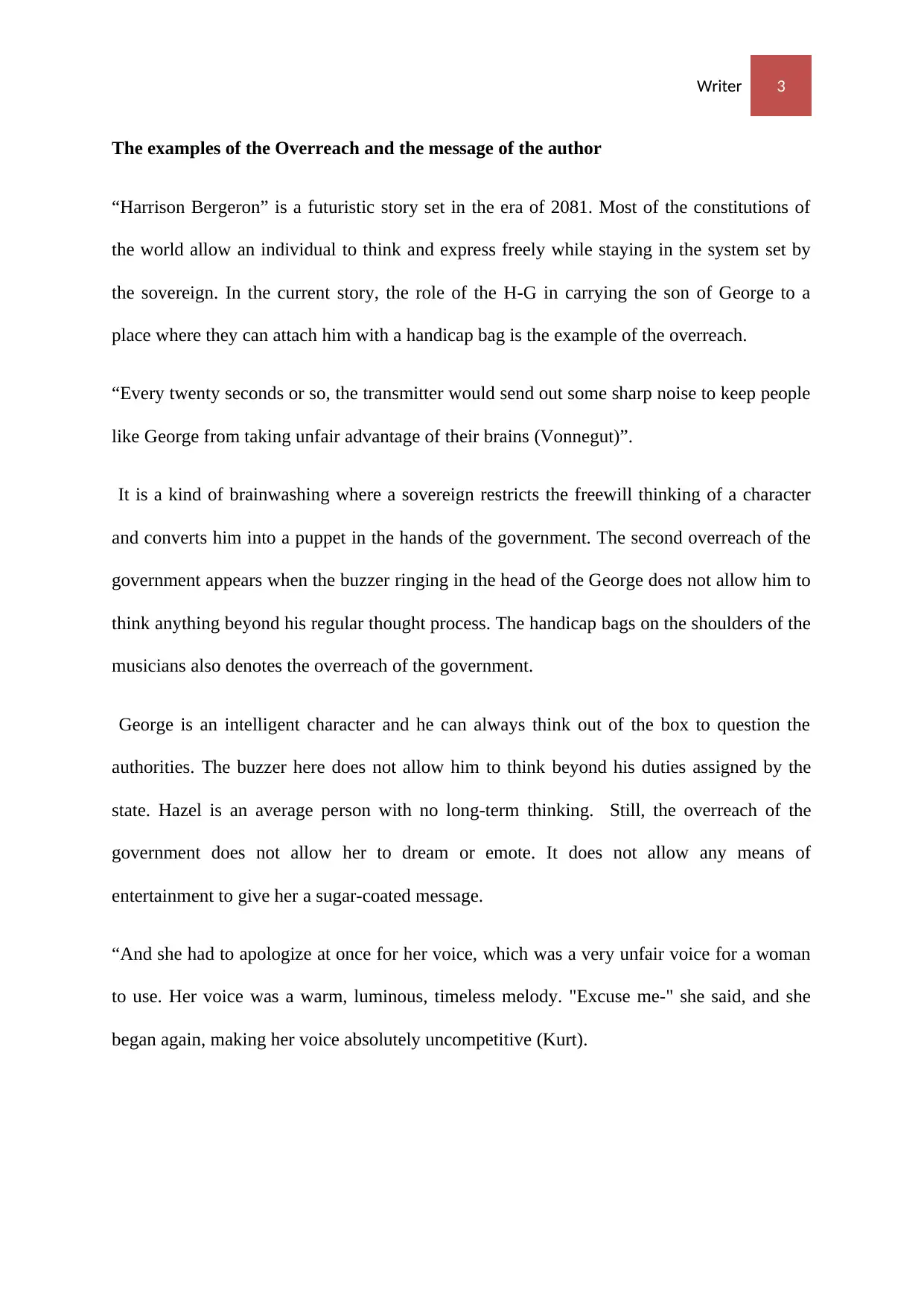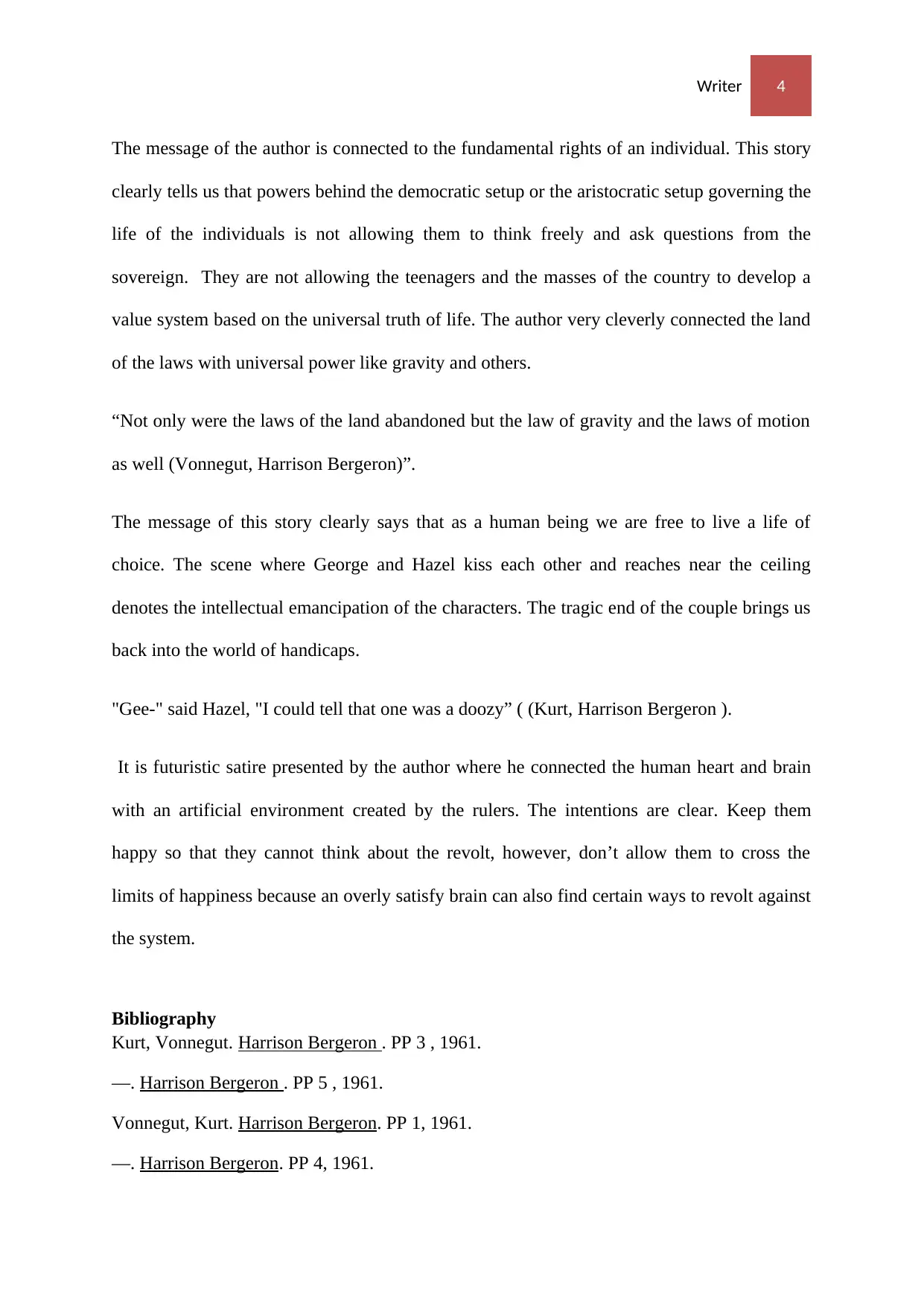Discussing Overreach and Author's Message in 'Harrison Bergeron' Essay
VerifiedAdded on 2023/05/30
|5
|661
|240
Essay
AI Summary
This essay delves into Kurt Vonnegut's 'Harrison Bergeron,' exploring the themes of government overreach and the author's underlying message about individual freedom and equality. The analysis focuses on specific examples within the story, such as the Handicapper General's interventions, George's mental handicap, and the suppression of talent and intellect. The essay argues that Vonnegut critiques the dangers of enforced equality at the expense of individual expression and critical thinking. The author connects the story's message to the fundamental rights of an individual, highlighting the importance of free thought and questioning authority. The tragic end of the characters serves as a cautionary tale about the consequences of sacrificing individuality for a distorted vision of equality. Desklib provides a platform for students to access similar solved assignments and past papers for academic assistance.
1 out of 5







![[object Object]](/_next/static/media/star-bottom.7253800d.svg)